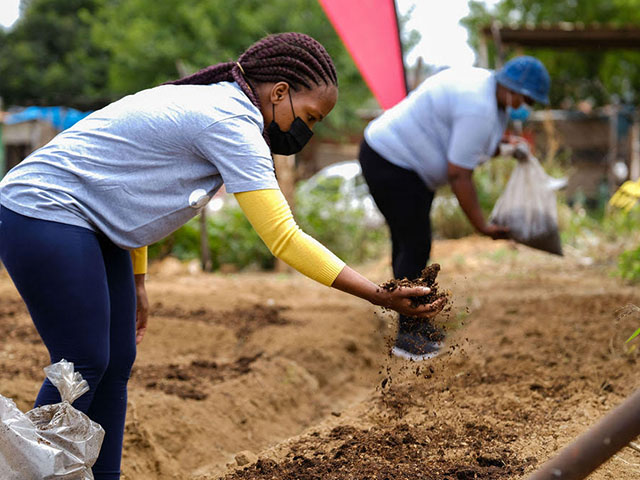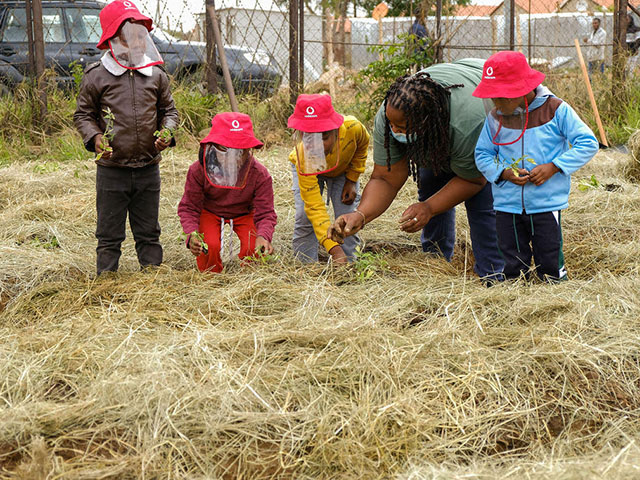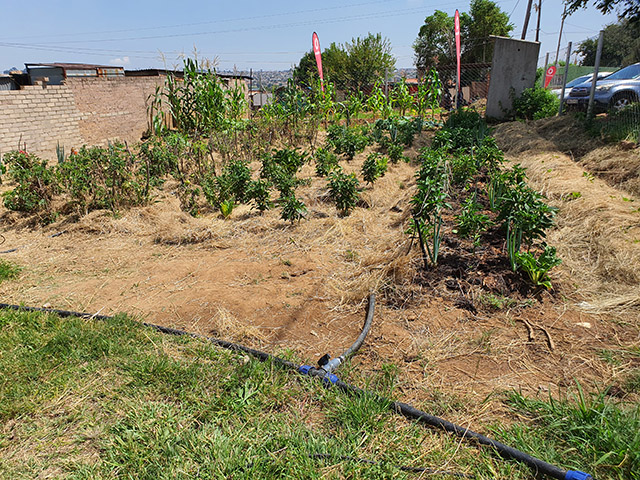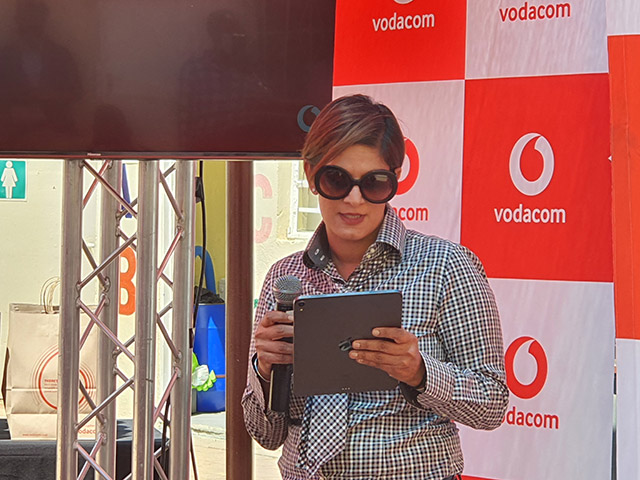Vodacom unwraps planting sustainability hopes for the planet - and the future
By Ryan Noik 7 March 2022 | Categories: feature articles
Features sponsored by the Samsung Galaxy S22 series:
It is well recognised that many of the habits and worldviews cultivated during one’s formative years and childhood can stay with a person throughout their lives. As well, the benefits of growing one’s own food are more than just an eco-aware trend, they are also one of the viable solutions to addressing food scarcity.
Against this backdrop, Vodacom recently unveiled what it is doing to empower Early Childhood Development Centres (EDCs) across the country. The company elaborated that it has embarked on a six-step sustainability journey where viable food gardens are being planted at eight of the EDCs within its education centre. There, the children are taught how to plant and pick food, and the food grown supplements feeding schemes while promoting sustainable practices.
“The latest figures show that over nine million people in South Africa are facing high levels of acute food insecurity. For children, with the basic right to food out of reach, learning often falls by the wayside,” commented Takalani Netshitenzhe, External Affairs Director for Vodacom South Africa.
“Urgent, immediate action is needed through sustainable farming practices, which can help to reduce these food gaps now and, in the future, as well as to support education while preserving our planet for the next generation,” she stressed.

To that end, Vodacom explained that the first step of its Green ECD journey is to ensure access to food through sustainable farming at these centres. Through partnerships with local NPOs and private businesses, the Green ECD Programme will see vegetables and fruit trees being planted at the ECD centres to supply the children with healthy food. The vegetables and fruit planted in the gardens include tomatoes, butternut, spinach, beetroot, and peaches. These have been particularly chosen both for their nutritional value and their ability to withstand varying growing conditions, the company explained.
Furthermore, the schools have been outfitted with six solar panels and energy-efficient appliances and lighting. A sustainable water supply is provided through a 5 000-litre JoJo Tank to collect rainwater.
However, the outreach effort is not confined to the centre, but extends into the community as well. The gardens are supplemented by educational workshops and sustainable farming training for both educators and parents on sustainable farming practices. The purpose of this is two-fold- Firstly is can filter through to other community members, and secondly it helps ensure that the food gardens will be maintained, while fostering skills development.
The ECD centres benefitting from the programme are Grasar Day Care Centre in Gauteng, Lady Frere Day Care Centre in the Eastern Cape, Divhani Community Creche, Hulisani Day Care Centre and Mvelaphanda Day Care Centre, all in Limpopo, Strydenburg Day Care Centre in the Northern Cape, RANS Future Kids in Mpumalanga and Sthandokuhle ECD Centre in KwaZulu-Natal.
The ECD that Vodacom showed us was the Grasar Day Care centre in Centurion.

“At Grasar Day Care Centre, we want to create a safe, educational space for the young children in our community. For many, the only healthy meal they receive is with us at the centre. The sustainable food gardens are not only nurturing their physical wellbeing but nurturing their minds with learning opportunities. This will lay a solid foundation for their education in the future,” added Grace Maluleke, owner of Grasar Day Care Centre.
The question that was on the top of my mind though, was how the pandemic has influenced Vodacom’s community development initiatives and whether the past two years have been deleterious to these efforts. In an interview with Shobana Singh, the Managing Executive for Facilities at Vodacom, she explained that in fact the pandemic cemented a lot of what the company was doing in terms of bridging the divide between the haves and the have nots.
“I think it has always been part of Vodacom’s DNA from the onset to make sure that CSI is part of what we do in terms of growth for communities. Also, with our pledge to 2025 to reduce impact on the environment, the pandemic has allowed us to accelerate that a lot more. As part of Vodacoms strategy, a key part is the planet pillar and the people pillar, and this initiative brings those together quite nicely,” she elaborated.

She also reassured that the company will be doing more of a fusion of the simultaneously supporting people, and more sustainable environmental approaches, as part of its social input to community development, moving forward.
Speaking to the top priority for the EDS’s specifically, she highlighted the importance of making them self sustaining.
‘’At the centres across the country, we previously did things like painting, ablutions and brought in elearning. But now, we wanted to take it to the next level in these centres, bringing in sustainable farming, and teaching kids to look after the environment.
I think the introduction of reusable rainwater and clean power generation is key for ensuring that this ecosystem doesn’t really need to depend on anything besides themselves to make themselves grow,” she concluded.
Most Read Articles

Have Your Say
What new tech or developments are you most anticipating this year?




